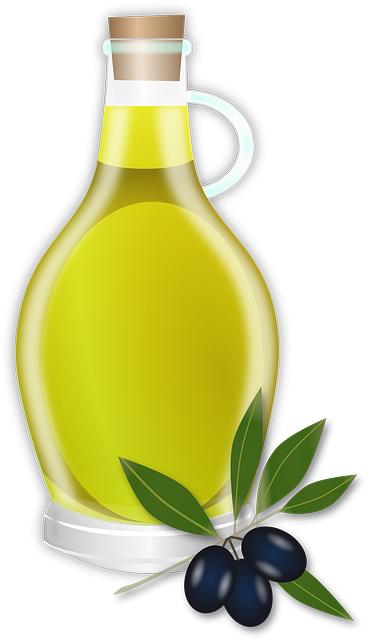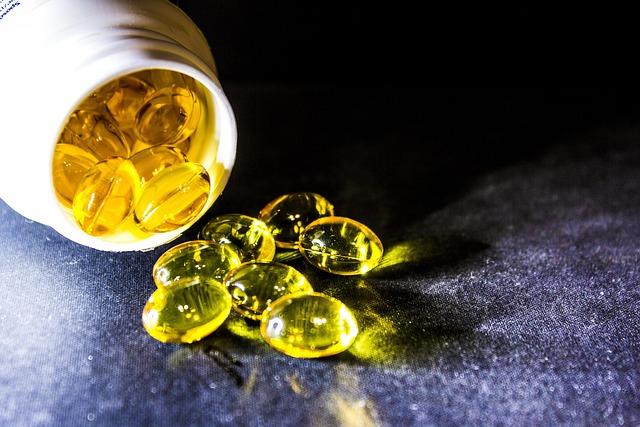In the quest for optimal health, the debate around dietary supplements often takes center stage, with omega-3 fatty acids consistently hailed as vital allies in maintaining well-being. Two popular sources of these essential fats—fish oil and algae oil—have sparked much discussion, notably regarding their environmental impact and bioavailability. As consumers become increasingly conscious of both their health and the planet’s future, the choice between these two oils raises crucial questions: Which option offers superior sustainability? How do they compare in terms of absorption? In this article, we delve into the world of omega-3 fatty acids, exploring the merits and drawbacks of fish oil and algae oil while shedding light on their roles in a healthy lifestyle and a sustainable planet. Join us as we unravel the intricacies of these two sources, aiming to empower yoru choices for a healthier you and a greener earth.
Understanding the Sustainability Debate: Fish Oil versus Algae Oil
As the debate around sustainability intensifies,both fish oil and algae oil have emerged as popular sources of Omega-3 fatty acids. Fish oil is traditionally seen as the primary source, derived from oily fish like salmon and mackerel. Though, its environmental impact raises questions about overfishing, habitat destruction, and the depletion of marine ecosystems. In contrast, algae oil presents a more sustainable option, cultivated from microalgae in controlled environments. This method minimizes ecological disruption and offers a renewable source of Omega-3s without contributing to the decline of fish populations. Key distinctions in sustainability include:
- overfishing concerns: Fish oil production is linked to unsustainable fishing practices.
- Environmental impact: algae oil cultivation has a much lower ecological footprint.
- Resource efficiency: Algae requires less land and water compared to fish farming.
When comparing the absorption rates of Omega-3s from these two sources, scientific evidence suggests that both fish oil and algae oil can be effectively utilized by the body. Though, there are notable differences. Fish oil typically contains EPA (eicosapentaenoic acid) and DHA (docosahexaenoic acid), which are readily absorbed and metabolized. Algae oil, on the other hand, provides a direct source of DHA and has a unique absorption profile. Studies show that the body can efficiently process the Omega-3s in algae oil, making it a viable alternative to fish oil. The following table summarizes the absorption characteristics:
| Source | Forms of Omega-3 | Absorption Efficiency |
|---|---|---|
| Fish Oil | EPA and DHA | High |
| Algae Oil | DHA (primarily) | Efficient |

The Science of Absorption: How Each Oil Supports Bioavailability
Understanding the science behind absorption is crucial when comparing omega-3 sources, especially fish oil and algae oil. Each oil undergoes varying processes of digestion and absorption in the body, influencing their effectiveness and bioavailability.Fish oil, derived from fatty fish like salmon and mackerel, contains EPA (eicosapentaenoic acid) and DHA (docosahexaenoic acid), which are readily available forms of omega-3s. The human body recognizes these compounds easily, leading to efficient absorption mechanisms. In practical terms, this means that fish oil typically delivers higher concentrations of these essential fatty acids quickly, making them readily usable for various physiological functions.
On the contrary, algae oil, sourced from algae, represents a plant-based alternative rich in DHA and typically contains lower levels of EPA. While algae oil boasts significant sustainability benefits,its absorption process can differ. Algae-derived omega-3s might require additional metabolic conversion, which can affect the speed and efficiency with which the body utilizes these acids. Furthermore, the presence of carotenoids and antioxidants in algae oil contributes positively to its overall bioavailability. Both oils possess unique advantages, and understanding these nuances helps consumers make informed choices aligned with their health objectives:
| Characteristic | Fish Oil | Algae Oil |
|---|---|---|
| source | Fatty fish | Microalgae |
| Omega-3 Types | high EPA & DHA | High DHA, low EPA |
| Absorption Rate | Fast | Variable, may require conversion |
| Sustainability | Questionable | High |

Nutritional Profiles Unveiled: Omega-3s and Their Impact on Health
Omega-3 fatty acids, renowned for their myriad health benefits, showcase distinct profiles when sourced from fish oil and algae oil. Fish oil is rich in two key types of omega-3s: EPA (eicosapentaenoic acid) and DHA (docosahexaenoic acid),which are vital for cardiovascular health,brain function,and reducing inflammation.In contrast, algae oil is an excellent plant-based alternative, providing a direct source of DHA and a smaller amount of EPA.This makes algae oil particularly appealing for vegetarians and vegans seeking to bolster their omega-3 intake without relying on fish products.
The sustainability aspect cannot be overlooked. While fish oil contributes to overfishing and depletes marine ecosystems, algae oil shines as an environmentally friendly option. by cultivating algae in controlled environments, it minimizes the ecological footprint while retaining comparable absorption rates of omega-3s. Recent studies indicate that absorption of DHA from both sources is efficient; however, individual responses may vary. Below is a comparative table highlighting the nutritional profiles of these oils:
| Source | Type of Omega-3s | Sustainability | Absorption Rate |
|---|---|---|---|
| Fish Oil | EPA, DHA | Moderate (Overfishing concerns) | High |
| Algae Oil | DHA (some EPA) | High (Environmentally friendly) | Comparable to Fish Oil |

Making the choice: Recommendations for Eco-Conscious Consumers
When choosing between omega-3 fish oil and algae oil, eco-conscious consumers should consider the sustainability factors of each option. Algae oil presents a more environmentally friendly choice, as it is derived from renewable marine algae sources that do not contribute to overfishing or depletion of marine ecosystems. On the other hand, fish oil often involves fishing practices that can lead to the endangerment of species and damage to ocean habitats. Opting for algae oil supports responsible consumption and aligns with a vision for a sustainable future.
Absorption is a basic aspect of effectiveness for omega-3 fatty acids, and both oil sources offer their unique benefits. Here’s a fast comparison that highlights their absorption and benefits:
| Oil Type | Source | Omega-3 Type | Bioavailability |
|---|---|---|---|
| Fish Oil | Wild Fish | EPA & DHA | High |
| Algae Oil | Marine Algae | DHA (EPA available in some) | Moderate to High |
Choosing the right oil not only impacts your health but also reflects your commitment to the planet.By considering factors such as sustainability, sourcing practices, and absorption rates, you can make informed decisions that honor both your wellness and the surroundings.
Future Outlook
In the quest for optimal health and nutrition, the choice between omega-3 fish oil and algae oil presents an intriguing crossroads. Both options boast powerful benefits for heart, brain, and overall well-being, yet they tread different paths in their journeys from water to wellness. As we’ve explored, the sustainability of algae oil shines brightly in its environmentally friendly production, while fish oil remains a longstanding favorite within the realm of customary supplements.
Moreover, the absorption rates play a crucial role in determining the efficacy of these oils for our bodies, leading many to weigh their options carefully. Ultimately, whether you lean toward the ocean’s bounty or the depths of plant-based alternatives, the most important takeaway is to prioritize what resonates with your health philosophy and lifestyle.
As we navigate this sea of choices, being informed empowers us to make decisions that not only enhance our health but also honor our commitment to sustainability. So, the next time you take a moment to choose your omega-3 source, remember: it’s not just about what you put in your body; it’s about the impact your choice has on the planet. Choose wisely, and may your journey toward wellness be as enriching as the nutrients you embrace.






